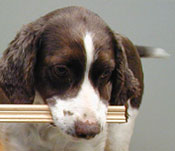Antifreeze for Home Boiler
Should you use antifreeze in a outdoor wood boiler? ... is the million dollar question. The 'should' part of the equation is a given. Unless you wish to blow a pipe in the deep of winter when your outdoor boiler gives out on you, or you never take extended holidays in the winter months, you really don't have a choice... some form of antifreeze is an essential insurance policy to guard against cold temperatures, pump failure and subsequent busted pipes... that being said DON'T use it when NOT necessary. It can encourage corrosion and increase maintenance if not monitored adequately
So where it is necessary the real question is one of what type of antifreeze for a home boiler should you use?
Glycol Antifreeze for Home Boilers:
Glycol antifreeze is the norm and definitely the preferred
product. It is nontoxic, and infact in its purest form, drinkable.
All the insurance companies love it knowing 'toxic cleanup'
will not be part of a damage claim in the case of a burst
pipe from an outdoor wood boiler.
There are typically a couple of products that fall under this description of propylene glycol antifreeze. One put out by Dow chemical (Dowtherm) and another that comes to mind is Harvey Heat -100 by the Harvey Corporation... and certainly a number of others. Prepared for sticker shock as it can cost you upwards of $1,500 to get what you need to fill your boiler.
Ethylene Glycol Antifreeze
Other types of glycol antifreeze are available like ethylene
glycol .It has excellent heat transfer efficiency and of a
lower viscosity than its propylene cousin, so not as hard
on your pumps. It is cheaper but not environmental sound.
In the case of a leak it must be handled as a toxic chemical,
whereas propylene glycol antifreeze can be put down the drain
if need be.
Automotive Antifreeze:
Some on the forums suggest using automotive antifreeze and
certainly that has proven to be quite effective if you believe
the forums. Certainly at roughly $10 per gallon it represents
a significantly cheaper solution. But like the ethylene glycol
antifreeze it is toxic. In the case of a leak, if the neighborhood
dog or young child happens to ingest any quantity you could
be held liable.
The most important thing I can tell you is to FIRST check with your insurance company. It may be that if you wished to be insured they will give you no choice but to use a propylene glycol antifreeze for a home boiler
So should you use antifreeze in a boiler? Absolutely! What type should you use? That is a decision where you must weigh the pro's and con's, but I'd first check out a few Internet links for purchasing Glycol Antifreeze online, to see if cost savings really are a significant part of the decision. If you can get the propylene version at the right price then there's no question it is the best way to go.
